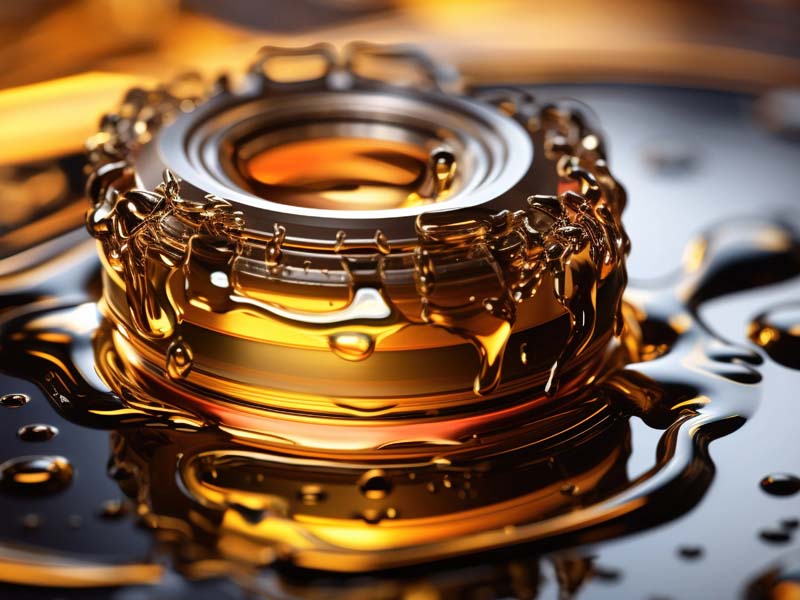
What are Lubricant Agents?
What are Lubricant Agents?
Lubricant agents are lubricant additives or materials used to reduce friction, wear, and heat generation between moving surfaces in mechanical systems. They create a thin, slippery film that separates moving parts, minimizing direct contact, and allowing smooth and efficient operation. Lubricant agents can be found in various forms, including liquids, semi-solids, or solids, and are widely used across many industries to protect machinery and enhance equipment performance.
Features of Lubricant Agents
Friction reduction: Lubricant agents decrease friction between surfaces in relative motion, allowing for smoother, more efficient operation.
Wear protection: They protect moving parts from wear and tear by minimizing direct contact, extending the lifespan of machinery and equipment.
Heat dissipation: Lubricant agents help dissipate heat generated during the operation of machinery, reducing the risk of overheating and related damage.
Corrosion prevention: Many lubricant agents have additives that protect metal surfaces from rust and corrosion.
Types of Lubricant Agents
There are several types of lubricant agents, which can be broadly classified based on their physical states and chemistries:
Mineral oil-based agents: Derived from petroleum, these lubricants have been widely used due to their affordability and versatility. They include engine oils, transmission fluids, and hydraulic oils.
Synthetic oil-based agents: These lubricants are artificially synthesized from chemical building blocks and offer superior properties compared to mineral oils, such as a wider operating temperature range and better resistance to oxidation. Examples include synthetic motor oils, gear oils, and compressor oils.
Greases: Greases are semi-solid lubricants made from a base oil, thickener, and additives. They are used in applications where liquid lubricants would be unsuitable, such as high-load or extreme operating conditions.
Solid lubricant agents: These agents include materials like graphite, molybdenum disulfide, and PTFE (Teflon). Solid lubricant agents can be used in dry or extreme conditions and are applied as films, coatings, or impregnated materials.
Applications of Lubricant Agents
Lubricant agents find use in various applications and industries:
Automotive: Engine oils, transmission fluids, and gear oils are essential for the smooth operation, protection, and longevity of engines, drivetrain components, and other systems in vehicles.
Industrial: Hydraulic systems, gearboxes, compressors, and other industrial machinery require different types of lubricants to ensure optimal performance and protection.
Aerospace: Lubricants with specific properties, such as low-temperature fluidity and high resistance to oxidation and thermal degradation, are used in various aerospace applications, including aircraft engines and moving parts.
Food processing: NSF-certified food-grade lubricants, which are formulated to be safe for incidental contact with food, are necessary for equipment and machinery used in food processing industries.
How to Select a Lubricant Agent?
When selecting a suitable lubricant agent, consider the following factors:
Application: Evaluate the specific application and desired outcomes, such as friction and wear reduction, heat dissipation, and corrosion protection, to determine the most suitable type of lubricant agent.
Operating conditions: Consider factors such as temperature range, pressure, and load to select a lubricant agent capable of performing effectively and consistently.
Compatibility: Ensure the chosen lubricant agent is compatible with the materials in the system, such as seals and gaskets, to avoid damage or degradation.
Environmental factors: In applications with specific environmental concerns, such as water contamination or biodegradability, select lubricants specifically formulated to minimize environmental impact.
Compliance with standards: Choose lubricant agents that meet relevant industry standards, certifications, and specifications, ensuring effective performance and compatibility with your equipment.
By considering these factors, you can select the most appropriate lubricant agent for your specific application, ensuring optimal performance, protection, and lifespan for your machinery and equipment.
Lubricant Agent Supplier
UNPChemicals is a professional and trusted lubricant agent supplier manufacturing high quality and range of lubricant additives according to your workflows and products. If you are looking for high performance lubricant agent solution, feel free to contact us.